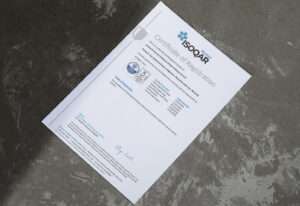Every so often a high-profile figure is exposed in the media. It turns out they’re not living the life they’ve projected and within hours, a reputation they’ve spent years building crashes to the ground. It’s shown to be a hollow façade, and the truth behind it isn’t nearly so pretty.
It happens in business too. We could all name a few big names who had a sterling reputation but nothing to support it. And that’s the thing about a reputation – it isn’t necessarily a reflection of the underlying truth – it’s dependent upon how your organisation is perceived. That perception matters across every part of your operation. Some organisations with excellent products and efficient service can struggle to build a positive reputation because they’re seen as cold and impersonal.
The benefits of a positive reputation
Despite the difficulties, it’s easy to see the benefits of a good reputation. It attracts better people to work within the organisation. It builds loyalty and because it’s grounded in trust, customers often extend their purchasing activities – if the supplier has excelled in one area, they’re highly likely to perform well in another. Reputation is also a powerful motivator. Wouldn’t we all choose to work for an organisation that we can trust and that others respect?
Building a positive reputation often takes time and it’s a balancing act. Because it’s based on getting everything right – product, brand, service, price, people, quality – each aspect must be viewed positively by both the market and by the customer base. Once a good reputation is established, protecting it becomes paramount. With poor management decision making, this can sometimes lead to companies becoming overly risk-averse, limiting their future development, or worse, in some of the scandals we’ve seen, lead to fraudulent practice.
The simple rules
If we go back to basics, our reputation is always – ultimately – based upon how we treat others. And that thread runs through the Access2 approach. The old adage “say what you do and do what you say” is more valid today than ever. We could sum it up as: do the right thing, do it consistently and have respect for all your stakeholders. Adding a bit of detail to the summary we advocate the following:
– Deliver. If you say you are going to do something, stick to it.
– Exceed expectations. Don’t start low and then better it. Promise high and go beyond.
– Recognise others. When you’ve been supported, give thanks. When you can offer support, offer it without expecting anything in return.
– Demonstrate professional competence. Contribute to the industry in which you operate.
– Be a community: your team, your neighbours, your suppliers, your customers. Value each other.
– Respect what you do, present yourself and your business well. Be clear about your purpose, your responsibilities and your ambitions.
Building a positive reputation can take time, but it doesn’t have to be difficult. When reputations fall apart, when scandals are revealed and once-mighty business giants start on the slippery slope of exploiting the loyalty of those who have supported them, it’s because trust has been betrayed and integrity sacrificed. If you want a positive reputation – be trustworthy. Act with integrity. The positive reputation will follow.



